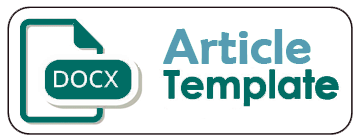SHIFT IN THE USE OF INDONESIAN LANGUAGE AMONG SEMARANG STATE POLYTECHNIC STUDENTS AS A FORM OF SELF-EXISTENCE FOR THE MILLENNIAL GENERATION
DOI:
https://doi.org/10.32497/jolali.v3i2.5800Abstract
This research has several objectives. First, identifying forms of shift in the use of Indonesian among Semarang State Polytechnic students. Second, analyze the factors that influence the shift in the use of Indonesian. Third, assess the implications of this shift for your existence as a millennial generation. A qualitative approach with descriptive-analytical methods was used in this research. Data was collected through online surveys, in-depth interviews, and analysis of social media content used by Semarang State Polytechnic students. The results of this research show that various forms of shifts in the use of Indonesian among Semarang State Polytechnic students have significant implications for self-existence.
References
Djajasudarma, F. (2017). Pergeseran Peran Bahasa Indonesia. Ranah: Jurnal Kajian Bahasa, 1(1), 1. https://doi.org/10.26499/rnh.v1i1.2
Gustiasari, D. R. (2018). Pengaruh Perkembangan Zaman Terhadap Pergeseran Tata Bahasa Indonesia; Studi Kasus Pada Pengguna Instagram Tahun 2018. Jurnal Renaissance, 3(2), 433”“442.
Putri, N. P. (2017). Eksistensi Bahasa Indonesia Pada Generasi Millennial. Widyabastra, 05, 61”“67. https://doi.org/10.1515/9783112372760-010
Sumarsono. (2012). Sosiolinguistik. Yogyakarta: Pustaka Pelajar.
Downloads
Published
Issue
Section
License
Authors who publish with this journal agree to the following terms:- Authors retain copyright and grant the journal right of first publication with the work simultaneously licensed under a Creative Commons Attribution License that allows others to share the work with an acknowledgement of the work's authorship and initial publication in this journal.
- Authors are able to enter into separate, additional contractual arrangements for the non-exclusive distribution of the journal's published version of the work (e.g., post it to an institutional repository or publish it in a book), with an acknowledgement of its initial publication in this journal.
- Authors are permitted and encouraged to post their work online (e.g., in institutional repositories or on their website) prior to and during the submission process, as it can lead to productive exchanges, as well as earlier and greater citation of published work (See The Effect of Open Access).





